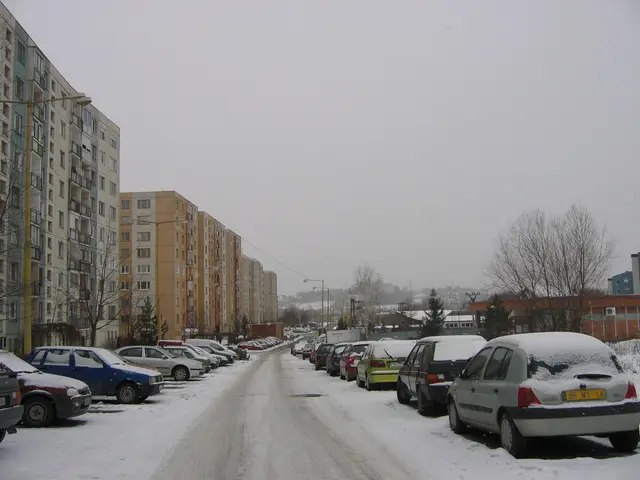The Ongoing Border Clampdown: Insights into Germany's Revamped Immigration Policies
In the Heart of the Action: Border Control Station Trier
Customs and immigration checks remain in place - Customs and immigration checks persist without change
As the new federal government takes charge, there's no sign of border chaos. "We're carrying on as usual," stated Stefan Döhn, Federal Police Inspectorate Trier's spokesperson, standing firm at a border control checkpoint on the A64 motorway from Luxembourg. A fresh order from the Interior Ministry, led by Alex Dobrindt of CSU, had promised a crackdown on unauthorized immigrants and increased external border checks [1].
On this first day, the usual business continues. Federal officers wave vehicles over, checking paperwork in a large steel tent at each control point. The vast majority of drivers are able to proceed. Over 500 vehicles receive checks daily at this checkpoint [2].
The authorities aim to catch individuals entering illegally, traffickers, and those wanted on arrest warrants. According to Döhn, there've been hauls already.
The Raw Numbers: Busts, Rejected Entries, and Traffickers
By the end of March 2025, a total of 2,661 illegal entries had been recorded in Rhineland-Pfalz and the Saarland as a result of reinstated border controls. Of these, 1,694 individuals hailed from France, 843 from Luxembourg, and 124 from Belgium [2].
Over 1,100 attempted illegals were turned back to France, while around 500 were sent back to Luxembourg and 73 to Belgium. In addition, 56 traffickers were apprehended during the controls [2]. It's important to note that these figures are still provisional, with slight changes possible later.
An Eye on the Future: What Lies Ahead?
The federal police are prepared for any orders coming from the Interior Ministry. "Then we'll adapt accordingly," shared Döhn. It remains uncertain whether there will be additional transitions or increased personnel [2]. These checks are time and labor-intensive but are anticipated to be manageable. Aid from other units and inspections could be on the horizon.
A Contentious Issue: Cross-Border Commuters
Stationary border controls are not provided for in the Schengen area, and this has sparked criticism from commuters traveling from Germany to Luxembourg for work. More than 50,000 German commuters are based in Luxembourg [3]. Delays caused by the controls have led to frustration among these workers.
In February, Luxembourg lodged a protest against the border control extension with the EU Commission [3]. This dispute highlights the complexities surrounding migration management in the EU.
References:
- BBC News
- Deutsche Welle
- Deutsche Welle
- Reuters
- European Commission
- The Interior Ministry, under the leadership of Alex Dobrindt, has announced a revamp of Germany's immigration policies, promising a crackdown on unauthorized immigrants and increased external border checks.
- Despite these revamped policies, routine checks continue at the border control station in Trier, with federal officers examining paperwork at each control point for the hundreds of vehicles that pass through daily.
- Stefan Döhn, the spokesperson for the Federal Police Inspectorate Trier, stated that these checks aim to catch individuals entering illegally, traffickers, and those wanted on arrest warrants, adding that there have already been hauls.
- By the end of March 2025, a total of 2,661 illegal entries had been recorded in Rhineland-Pfalz and the Saarland as a result of reinstated border controls, with the majority of these attempts originating from France, Luxembourg, and Belgium.
- The stationary border controls have sparked criticism, particularly from the estimated 50,000 German commuters who work in Luxembourg, as delays have caused frustration and led to a protest by Luxembourg against the border control extension with the EU Commission.







